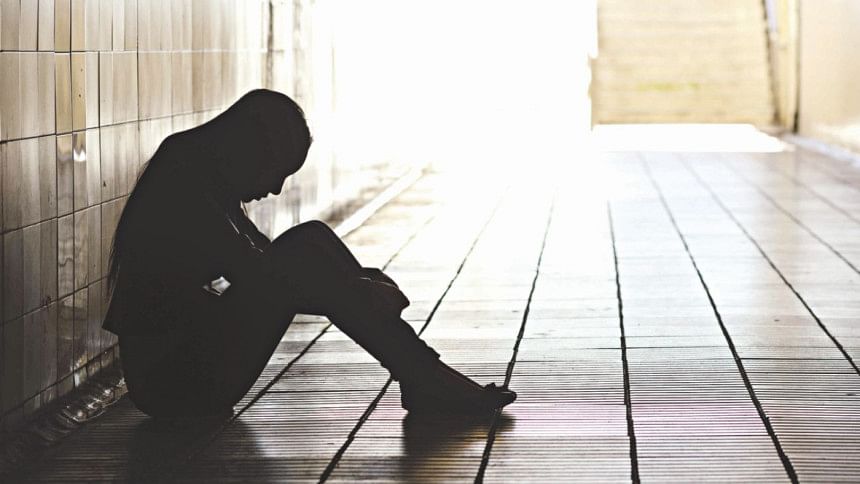Drug problem requires collective solutions

AT the 2016 United Nations General Assembly Special Session on the World Drug Problem, it was not just governments that came together to decide on new drug policies that are humane and leave no one behind—people in general, including women and youth, congregated too. They delivered clear messages that without their voices, there should be no discussion about drug policy, and that it is time for new approaches. These must be grounded in science, health and human rights.
And world leaders listened. Bangladesh and other UN Member States made public commitments to jointly reduce abuse, illicit trafficking and the harm that drugs cause to societies. To tailor measures to the specific needs of children, youth and other vulnerable members of society. To ensure effective prevention and provide skills and opportunities for healthy lives. To make parents more supportive, social environments healthier and education and vocational training equally accessible. There was one unequivocal appeal: "Put People First."
In Bangladesh, an estimated 2.5 million people are addicted to drugs, as per a 2013 study of Bangabandhu Sheikh Mujib Medical University (BSMMU) in Dhaka. The Department of Narcotics Control (DNC), Bangladesh's apex drug control agency, reported in 2017 that people between 16 and 40 comprise 88.39 percent of the drug abusing population. The yaba drug has further amplified problems pertaining to addiction and trafficking. As per DNC statistics, law enforcement agencies seized a mammoth cache of 40,079,443 yaba tablets in 2017.
Clearly, addressing drug abuse, reducing demand and illicit trafficking in Bangladesh requires complementary efforts of health, education, social and law enforcement agencies. Respect for human rights and the rule of law must be the fundamental element in any anti-drugs strategy with evidence-based and balanced responses, which create trust in State authorities. There must be outreach programmes for children and youth in schools, and well-informed media campaigns. It is also an imperative for governments to ensure that people do not face marginalisation or stigma. They do not lose their human rights and dignity because they use drugs. They enjoy equal rights to health, life, non-discrimination, freedom from arbitrary arrest and detention. This is essential because the stigmatisation and the fear of discrimination may dissuade many from seeking treatment, as addressed in the recent resolution 61/11 of the UN Commission on Narcotic Drugs.
Bangladesh has been an active partner of the United Nations efforts against drug abuse and illicit trafficking, and has a commitment to address the crisis from health and law enforcement perspectives. However, the recent incidents of alleged extrajudicial executions and other human rights abuses that have come to light from mainstream media reports and civil society are concerning. According to the International Narcotics Control Board, an independent, quasi-judicial expert body that monitors the implementation of UN drug conventions, extrajudicial responses to drug-related criminality are violations of the conventions, and drug-related crimes must be addressed through formal criminal justice responses. Authorities and agencies working on prevention of crime should follow due processes of law and respect the rights of the accused. There is no room for impunity for human rights violations in the name of drug control.
As the Secretary-General has reminded us, based also on his own experience with drug policy in his native country, it is vital that we examine the effectiveness of the War on Drugs approach, and its consequences for human rights. The UN High Commissioner for Human Rights recently expressed concern about the alleged violations in Bangladesh and called for an investigation. The UN and others have been calling for many years for a focus on alternative criminal justice responses and for resources for prevention, treatment, and social reintegration, including anonymous drug dependence treatments and harm reduction services.
Bangladesh has been making efforts to provide such responses, supported by the UN and partners, for example through drop-in centres for drug users, review of policies, support to HIV prevention, and capacity building for law enforcement and civil society partners. But it is important to ensure that these and other valuable public health services continue to be allowed to operate safely, and that years of investments and the health and welfare of those who use and benefit from them are safeguarded.
The people of Bangladesh deserve a life free from drugs, and effective drug policies that uphold their basic rights. This is particularly important to ensure that the youth and children continue to enjoy their rights to education, health and information, and remain free from the experience of violence. It is time for governments, people, civil society and the UN to join hands to collectively act against the drug problem and help our younger generation lead healthy and safe lives. The UN stands ready to work with Bangladesh towards these goals.
Mia Seppo is the UN Resident Coordinator in Bangladesh. Sergey Kapinos is Regional Representative, United Nations Office on Drugs and Crime (UNODC), Regional Office for South Asia.





Comments